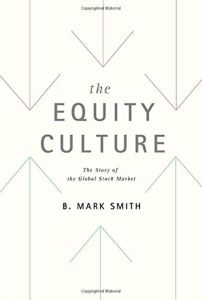
Recommendation
This book provides a concise and highly readable introduction to the development of the market economy. Beginning with ancient Rome and continuing to the first years of the twenty-first century, author B. Mark Smith traces the ups and downs of financial markets. He shows how and why trading began, explains the great bubbles and panics, and connects the course of markets to the evolution of such economic institutions as central banks. You will learn about some of the more colorful characters, the rogues and geniuses behind great frauds and great rescues. The book moves quickly and cleanly through the dense thicket of market analysis. The author identifies the great market theorists, from Joseph de la Vega through Louis Bachelier to Harry Markowitz and beyond. Moreover, he considers markets on a global scale, paying attention now to Paris, now to Japan, now to Taipei. This is a great deal of material to treat in a single book and any one of the subjects undertaken could easily justify not just one but several volumes. Thus, consider this to be something like a stroll through a market museum with a good docent as your guide. Those who have already read extensively about markets and economics will appreciate the book's light touch and amusing anecdotes. Those new to the field will appreciate its accessibility. getAbstract recommends this highly to all readers with an interest in finance.
Summary
About the Author
B. Mark Smith is the author of Toward Rational Exuberance: The Evolution of the Modern Stock Market. He was a professional stock trader for nearly two decades. He lives in Manhattan.









Comment on this summary